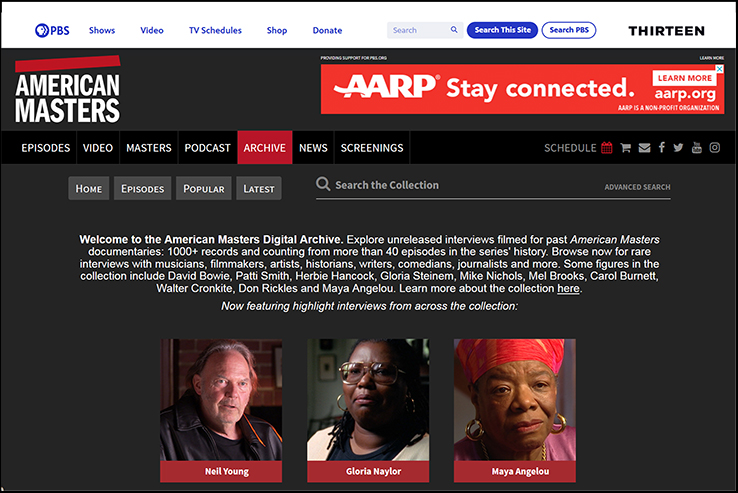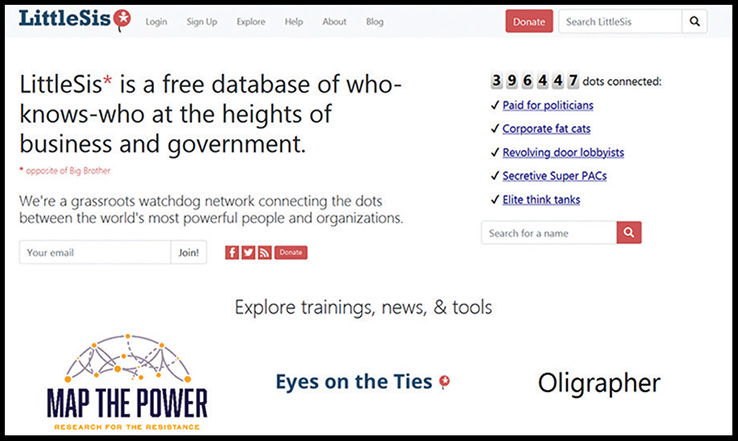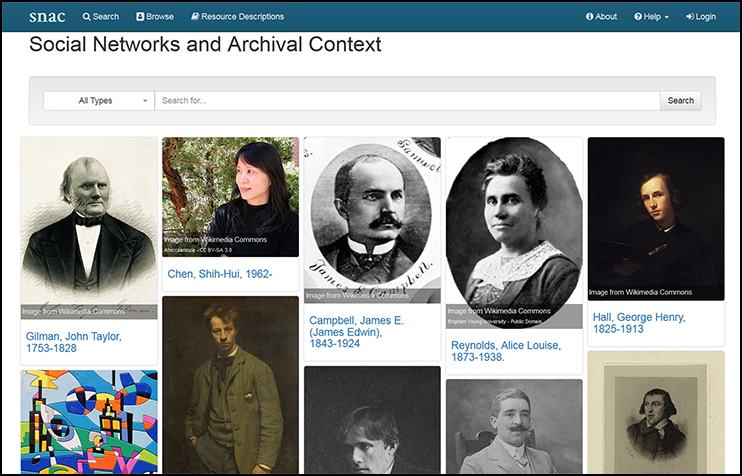Best Free Resources | Best Reference 2020
Librarians and readers looking for reliable and useful free web resources will find these top picks from 2020 worth exploring.

American Masters. pbs.org/wnet/americanmasters/archive
PBS’s documentary series American Masters, which since 1986 has featured interviews with filmmakers, visual artists, actors, authors, musicians, and others, has released more than 1,000 hours of never-before seen footage that was cut from the episodes before airing. Users will find a trove of insights from Maya Angelou, Sidney Lumet, and Audra McDonald, among others. Searchable transcripts let users advance to pertinent sections of the interviews.
Constellate. tdm-pilot.org
This new text and data analytic service makes JSTOR data available for users to create datasets, conduct text analysis, and more. Available collections include Doc South, Chronicling America, and CORD-19. Constellate stands out as both a practical tool and an educational resource to learn more about data-mining.
Descript. descript.com
This intuitive site lets users edit their video and audio files easily. Deleting a word or phrase in an automatically generated text transcript will cut it from the video or audio file, and though Descript is free, paid versions allow users to create a synthesized version of their voice and easily insert a word or phrase simply by typing it into the transcript. Users can also add titles and captions, create transitions between scenes, and more.
Historical Dictionary of Science Fiction. sfdictionary.com
A former editor at large at the Oxford English Dictionary, Jesse Sheidlower has produced the Historical Dictionary of Science Fiction, the result of the crowdsourced Science Fiction Citation Project. The database defines terms, from aircab to zine, and time lines tracing word usage are enlightening (Wookiee first appeared not in the 1977 Star Wars but in George Lucas’s 1971 film THX-1138).

Little Sis. littlesis.org
Part of the Public Accountability Initiative, an organization devoted to corporate and government accountability, this database makes clear the ways in which top organizations and individuals such as politicians, lobbyists, CEOs, and financiers are linked. Journalists, grassroots activists, watchdogs, and anyone concerned about corruption will find this a go-to resource.
Newspaper Navigator. news-navigator.labs.loc.gov/search
Though Chronicling America, the Library of Congress’s collection of 16 million newspaper pages, has a robust text search function, its visual content—photos, maps, comics, ads, cartoons, illustrations—isn’t quite as searchable. Enter Newspaper Navigator, a project that trained a machine learning model to identify visual content. Though the initiative is in its early stages, it will be a boon to historians, genealogists, journalists, and curious members of the general public.
Not Real News. apnews.com/hub/not-real-news
To help in the increasingly difficult fight against misinformation, each week the Associated Press rounds up and sheds light on popular yet false stories that circulate. Librarians and patrons alike will find this a vital tool for fact-checking and an excellent resource to sharpen news literacy skills.
Open Library. openlibrary.org
This resource from the Internet Archive (IA) strives to list information on every book every published, be it metadata or scans of actual books. Users can check out and read library books, organized by subject heading such as “health & wellness,” “art instruction,” and “business & finance.” Open Library invites the public to donate books to be scanned and contribute metadata. Although many public and academic libraries have expressed support for the Open Library and its Controlled Digital Lending model, IA is facing an ongoing lawsuit filed in June 2020 by several publishers, accusing the Open Library of distributing “digital bootleg versions” of books online.
Reasonator. reasonator.toolforge.org
This nonstop source of discovery aggregates Wikidata entries on people, places, and other topics, in a far better organized and more attractive fashion than Wikidata (or, as Reasonator bills itself, “Wikidata—in pretty!). A page on Barack Obama, for instance, lists information such as the former president’s parents, spouse, children, place of birth, blood type, and education, all linked to relevant pages. A time line of noteworthy events for each subject is especially useful.
Scholia. scholia.toolforge.org
Like Reasonator, Scholia helps users make sense of information, focusing on data from academic citations. Doing a search for an academic institution, such as New York University, yields affiliated researchers, their research subjects, recent publications, and more.
Smithsonian Open Access. si.edu/openaccess
The Smithsonian has released 2.8 million images from its vast holdings—among them the National Air and Space Museum, the Smithsonian Libraries and Archives, and the National Zoo. An FAQ indicates that images are in the public domain as Creative Common Zero, meaning they can be used without permission from Smithsonian. Those looking to jazz up slideshows or websites are sure to find something among this wealth of offerings.

Social Networks and Archival Context. snaccooperative.org
Flippantly described as “Facebook for dead people” (though individuals who are alive are covered here, too), this site collects disparate data such as biography, occupation, and relationships. Researchers curious about which special collection or archive might have information on a given subject will find this site a valuable starting point.
Standard Ebooks. standardebooks.org
There are plenty of sites where readers can find free electronic versions of books in the public domain, but few are as beautifully organized as this one—nor do they boast such lovely book covers. This resource cleans up typographical errors, offers a wealth of metadata for each title, and makes books available in a variety of formats.
TweatBeaver. tweetbeaver.com
Twxplorer twxplorer.knightlab.com
As engaging as Twitter is, users often find it difficult to mine information from the social media site, but two resources make it a little easier. With TweetBeaver, users can download another account’s time line, figure out if two people follow each other or have had a conversation, download others’ followers lists, and more. Twxplorer offers a different way of searching the site; typing in a search term yields relevant recent tweets, related terms, and hashtags.
Gary Price aggregates LJ’ s INFOdocket, and Mahnaz Dar is Reference & Professional Reading Editor, LJ & School Library Journal.
ALREADY A SUBSCRIBER? LOG IN
We are currently offering this content for free. Sign up now to activate your personal profile, where you can save articles for future viewing









Add Comment :-
Comment Policy:
Comment should not be empty !!!